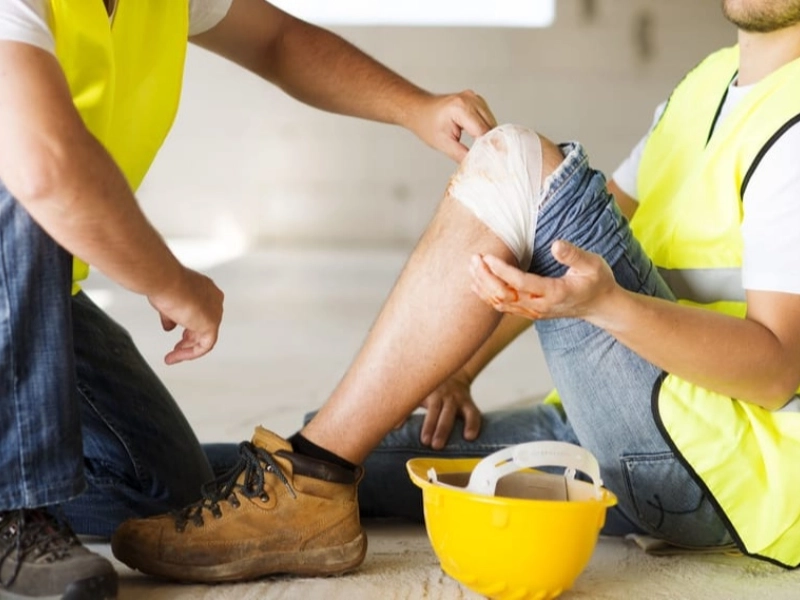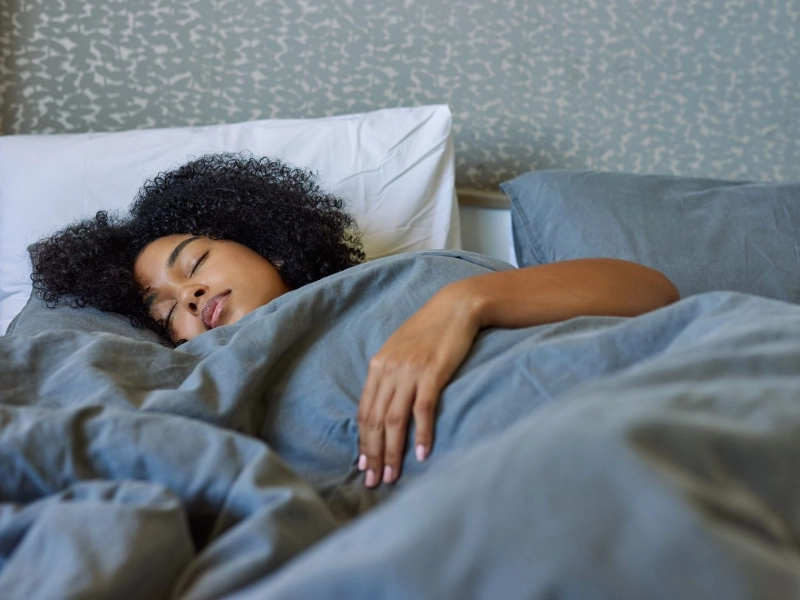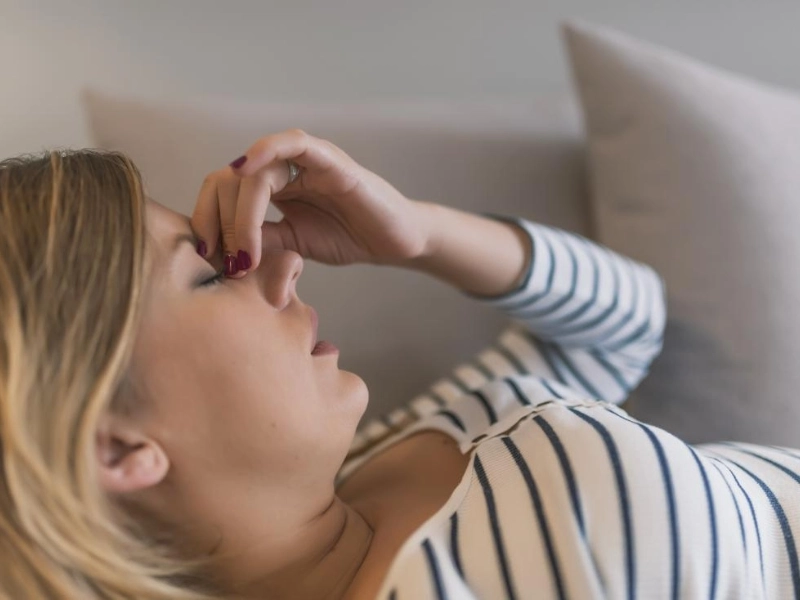What Remains After Excessive Cycling?
Cycling is a fantastic, low-impact workout that is good for your health. It reduces stress and releases feel-good endorphins. But if you ride too much or exert too much effort, cycling might become dangerous. Making sure you are getting enough sleep, food, and hydration as well as other recovery-related factors is essential to striking a balance.
1. You sustain harm
 Generally speaking, if you commute small distances and ride a low-intensity bike every day, your body won't encounter overtraining syndrome. But it's crucial to pay attention to your body and take a day off if you're feeling uncomfortable.
Excessive riding might decrease your immune system, increasing your risk of getting sick with a cold or other ailments. Aches and pains like knee pain or perineal pressure from too many pedal strokes may also start to affect your body.
Healthline advises using a padded bicycle seat if you must ride a long distance to assist lessen this problem. This can help you maintain better posture and prevent friction, both of which can lower your risk of injury. It has been demonstrated that cycling strengthens the core, which helps to maintain steady balance and coordination.
Generally speaking, if you commute small distances and ride a low-intensity bike every day, your body won't encounter overtraining syndrome. But it's crucial to pay attention to your body and take a day off if you're feeling uncomfortable.
Excessive riding might decrease your immune system, increasing your risk of getting sick with a cold or other ailments. Aches and pains like knee pain or perineal pressure from too many pedal strokes may also start to affect your body.
Healthline advises using a padded bicycle seat if you must ride a long distance to assist lessen this problem. This can help you maintain better posture and prevent friction, both of which can lower your risk of injury. It has been demonstrated that cycling strengthens the core, which helps to maintain steady balance and coordination.
2. Your motivation wanes
 It's simple to rely solely on motivation, yet as an athlete, motivation comes and goes. In addition to working out too much, if you find yourself dreading getting on the bike, it may be time to look at lifestyle variables that are affecting your training.
Try varying your routine by choosing a new route or meeting at a different time, for instance, if you frequently ride with the same group of people and your rides feel tedious. Refocusing and reminding yourself of the initial reasons you fell in love with cycling will be aided by this.
Try going on some random pleasure rides without caring about power or pace if you're feeling burned out. That will let you enjoy yourself and might perhaps reignite your interest in the sport.
It's simple to rely solely on motivation, yet as an athlete, motivation comes and goes. In addition to working out too much, if you find yourself dreading getting on the bike, it may be time to look at lifestyle variables that are affecting your training.
Try varying your routine by choosing a new route or meeting at a different time, for instance, if you frequently ride with the same group of people and your rides feel tedious. Refocusing and reminding yourself of the initial reasons you fell in love with cycling will be aided by this.
Try going on some random pleasure rides without caring about power or pace if you're feeling burned out. That will let you enjoy yourself and might perhaps reignite your interest in the sport.
3. You don't get adequate rest
 The most skilled athletes are aware of how important enough sleep is to their training. Your body won't heal from sleep deprivation and may eventually stall out or sustain damage.
Because it's low-impact, cycling is an excellent approach to enhance your sleep quality. This implies that, in comparison to other forms of exercise, it is less likely to result in aches and pains in your bones and joints.
Cycling is also a fantastic method to decompress and wind down, particularly if you cycle in a group or with friends. The feel-good hormone oxytocin is released through socialization and aids in the reduction of stress and anxiety. This may result in a more restful night's sleep and enhanced cycling performance. For this reason, a lot of cyclists are discovering that riding improves their quality of sleep.
The most skilled athletes are aware of how important enough sleep is to their training. Your body won't heal from sleep deprivation and may eventually stall out or sustain damage.
Because it's low-impact, cycling is an excellent approach to enhance your sleep quality. This implies that, in comparison to other forms of exercise, it is less likely to result in aches and pains in your bones and joints.
Cycling is also a fantastic method to decompress and wind down, particularly if you cycle in a group or with friends. The feel-good hormone oxytocin is released through socialization and aids in the reduction of stress and anxiety. This may result in a more restful night's sleep and enhanced cycling performance. For this reason, a lot of cyclists are discovering that riding improves their quality of sleep.
4. You eat improperly
 Eating healthfully is one of the most crucial things a cyclist can do. Finding the ideal ratio of amount to quality is a bit of an art, but maintaining your body's fuel supply is essential to riding at your best.
The two primary energy sources for the human body are fats and carbs. The majority of our energy comes from lipids during low-intensity rides, but when we ride harder, our bodies start utilising carbohydrates as fuel.
It's imperative to avoid consuming large meals, particularly ones high in fat, just before a ride. A big lunch eaten too soon before your bike may cause nausea and gastrointestinal upset, which will significantly reduce the enjoyment of the trip. To stay hydrated, make sure you consume lots of water.
Eating healthfully is one of the most crucial things a cyclist can do. Finding the ideal ratio of amount to quality is a bit of an art, but maintaining your body's fuel supply is essential to riding at your best.
The two primary energy sources for the human body are fats and carbs. The majority of our energy comes from lipids during low-intensity rides, but when we ride harder, our bodies start utilising carbohydrates as fuel.
It's imperative to avoid consuming large meals, particularly ones high in fat, just before a ride. A big lunch eaten too soon before your bike may cause nausea and gastrointestinal upset, which will significantly reduce the enjoyment of the trip. To stay hydrated, make sure you consume lots of water.
5. You become ill
 It is advisable to stop cycling if you are ill until all of your symptoms, such as fever, aches and pains, and coughing, have gone. This is due to the fact that cycling might actually impair immunity, making you more susceptible to viruses like colds.
Excessive cycling might also have an impact on the digestive system. This occurs when the blood supply to the working leg muscles is overworked, leading to an accumulation of acid and a decrease in pH. Bloating, nausea, and a weak feeling may result from this.
A 2015 study found that following a 30-minute bike ride, fit cyclists had higher levels of salivary antimicrobial proteins than their less fit peers, suggesting that healthy people are better able to fend off colds. This is because the immune systems of fit individuals are more robust and robust.
It is advisable to stop cycling if you are ill until all of your symptoms, such as fever, aches and pains, and coughing, have gone. This is due to the fact that cycling might actually impair immunity, making you more susceptible to viruses like colds.
Excessive cycling might also have an impact on the digestive system. This occurs when the blood supply to the working leg muscles is overworked, leading to an accumulation of acid and a decrease in pH. Bloating, nausea, and a weak feeling may result from this.
A 2015 study found that following a 30-minute bike ride, fit cyclists had higher levels of salivary antimicrobial proteins than their less fit peers, suggesting that healthy people are better able to fend off colds. This is because the immune systems of fit individuals are more robust and robust.








